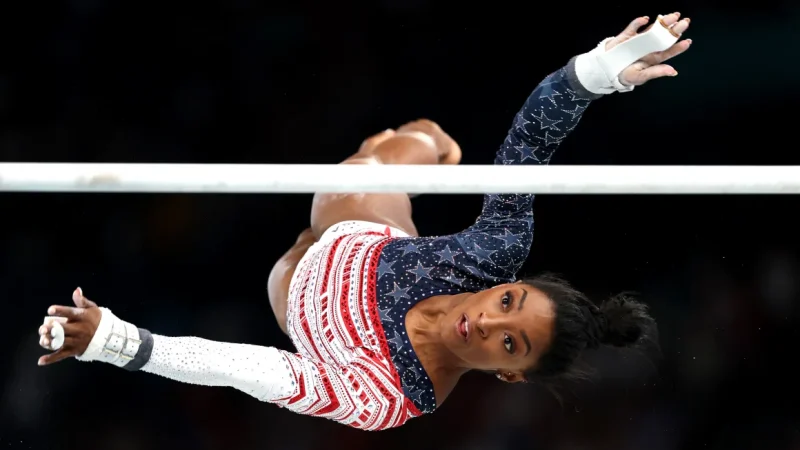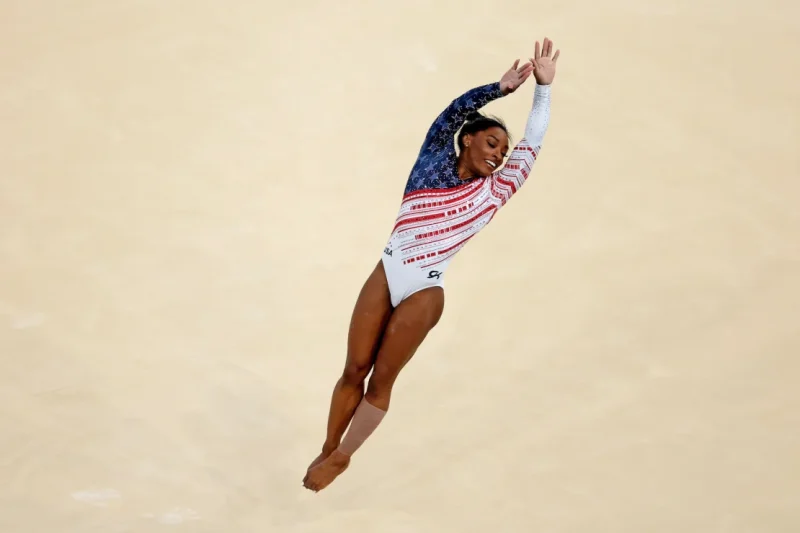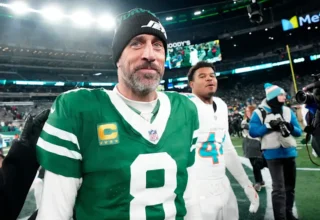
With the first chapter of Simone Biles’ comeback at the Olympics already complete, the next is ready to be written.
After USA took team gold earlier this week, making Biles the most decorated American gymnast ever at the Games, the 27-year-old will compete again in the all-around final for a chance to win her ninth Olympic medal – and sixth gold.
All this comes not long since Biles said she had considered walking away from gymnastics having experienced a mental block called “the twisties” at the Tokyo Olympics. There are no signs that she is hampered by the same issues this time, and on Tuesday, she led the US team to an emphatic gold-medal-winning score of 171.296.
“I started off with therapy this morning,” Biles said on Tuesday after the team event. “That was super exciting. I told my therapist I was feeling calm and ready.”
She ended the day alone in the center of Paris’ Bercy Arena, completing her floor routine to rapturous applause.
At 12:15 p.m. ET on Friday, Biles will return to the same venue hoping to take her second all-around victory alongside teammate and friend Suni Lee, the defending champion who is on a comeback path of her own having been sidelined with kidney disease last year.
Those two will compete across four rotations – vault, uneven bars, beam and floor – and are favorites to make the podium for the US. Brazil’s Rebeca Andrade is another contender after having helped Brazil to a first-ever bronze medal in the team final and winning the silver in the all-around in Tokyo.
All eyes, however, will be on Biles, fast becoming one of the main protagonists of these Games. A role model for many younger athletes, her popularity is only growing thanks to her performances in the gym and her attitude outside of it.
“She’s fun to be around, relatable, and what you see is what you get,” Katie Walsh, the director of Netflix’s recently released documentary, “Simone Biles: Rising,” told CNN.
“She’s obviously accomplished a lot on the competition floor, but she’s also done so much outside of it. She is an advocate for mental health and for sexual abuse survivors. She is an amazing athlete, but she is also just an amazing human being.”
The documentary details Biles’ experience at the Tokyo Olympics and her subsequent advocacy for mental health. It tackles many of the challenges she has faced throughout her career, including when she testified that she was one of more than 140 female athletes sexually abused by former USA Gymnastics team doctor Larry Nassar – later convicted and sentenced in a Michigan state court to up to 175 years in prison.
“Leading up to the Paris Olympics, we wanted to show a larger audience that Simone was not only the G.O.A.T. [greatest of all time], but also human,” said Walsh.
“We thought it was important to show the journey – from struggling in the gym post-Tokyo to gaining confidence and working on her mental health in therapy and how that has shaped her as the athlete and person today who is about to compete in Paris.
“She has also found a greater life balance since Tokyo, has gotten married and values spending time with her family and friends, and we thought it was important to show that as well.”

The next installment of the series, which will look at Biles’ performances in Paris, is a work in progress, but this Olympics is already shaping up to be a compelling redemption story for the five-time gold medalist.
“I think we all had something to prove from Tokyo, and tonight, we did just that,” Biles said after victory in the team event.
Few would argue that there is more Biles can still do to secure her legacy as the greatest gymnast of all time at this stage, but Thursday night in Paris will be a chance to do exactly that. Calm and ready like she was before the team final, she promises to be a formidable force.







